
THE EARLY 20TH century was a time of pioneering aviation achievements. There were, for example, the first flights from England to Australia in 1919, a nonstop transatlantic flight in the same year, and around the world in 1924. That it took five years after the 28-day England to Australia flight for an attempt to be made on the 44-day flight around Australia in 1924 is testament to how difficult a journey it was, and how long stretches of Australia were more remote than, say, India through to the Dutch East Indies (Indonesia).
Building the three big R's-roads, railways and runways around Australia - was great nation-building work at the time. A flight around Australia would not only "prove it could be done", but be reconnaissance to investigate areas for airfield construction. It was the early days of air travel and public confidence was buoyed by intrepid flights. The adventure captured the nation's attention, was spread across newspaper front pages and was followed by families listening to the wireless in their sitting rooms.
Wing Commander Stanley 'Jimmy' Goble and Flight Lieutenant Ivor McIntyre (G&M) of the RAAF had been tasked to undertake the mission, following the coast, and chose to use a Fairey Mk III Seaplane because there weren't enough runways to cater for a conventional aeroplane. This caused all sorts of complications - fuel drums were delivered to about 50 rivers, lakes and beaches over several months by sea and land, so they could land on water and refuel. They often slept by the plane.
This story is from the {{IssueName}} edition of {{MagazineName}}.
Start your 7-day Magzter GOLD free trial to access thousands of curated premium stories, and 9,000+ magazines and newspapers.
Already a subscriber ? Sign In
This story is from the {{IssueName}} edition of {{MagazineName}}.
Start your 7-day Magzter GOLD free trial to access thousands of curated premium stories, and 9,000+ magazines and newspapers.
Already a subscriber? Sign In
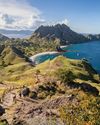
SULAWESI SENSATIONS
There are worlds within worlds and marvels untold waiting to be experienced on Indonesia's remote islands.
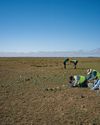
SEARCHING FOR AUSSIE DINOSAURS
Our understanding of where to find ancient life in Australia has been turned on its head by a new appreciation of the country's geology. Now the world is looking to our vast outback as the latest hotspot to locate fossils.
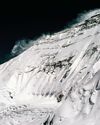
THE HARDEST NIGHT
The first Australian ascent of Mt Everest in 1984 is one of the great feats of mountaineering. Climbed by a small team semi-alpine style, with no bottled oxygen, via the Great (Norton) Couloir, it remains unrepeated 40 years later.
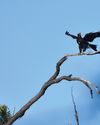
WEDGE-TAILED WONDER
The chance discovery of an eagle nest leads to an extended vigil observing normally hidden behaviours of one of nature's supreme winged marvels.
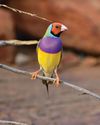
BURDENED BY BEAUTY
Northern Australia's Gouldian finch survives in huge numbers in cages around the world, but its wild population continues to struggle.
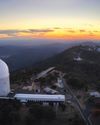
A TELESCOPE FOR A GOLDEN AGE
After a stellar 50 years as one of the country's major scientific assets, the AAT continues to play a major role in keeping Australian astronomy on the world stage.
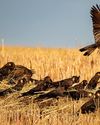
COCKY WHISPERING AT COOMALLO CREEK
This patch of remnant bush on the edge of the West Australian wheatbelt is a place loved by one of Australia's rarest bird species and the man who has studied the site for more than 50 years.

A PIONEERING PAIR
Louisa Atkinson and her mother, Charlotte, were among Australia's earliest authors, and pioneers in women's rights.

THE LONGEST WALK
Lucy Barnard is walking from Argentina to Alaska -the length of the Americas - on an extraordinary journey of endurance and adventure.
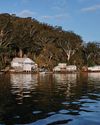
SECLUDED, BUT NOT ALONE
In an era of heightened social isolation, where many of us lead lonely lives, Dangar Island offers the chance to be part of a supportive, connected community.